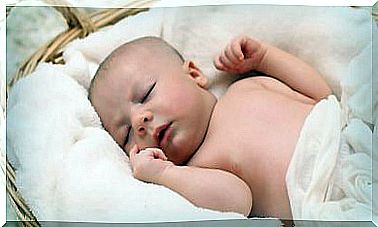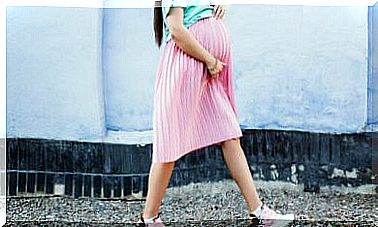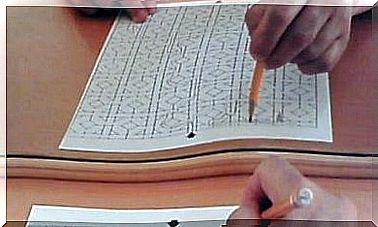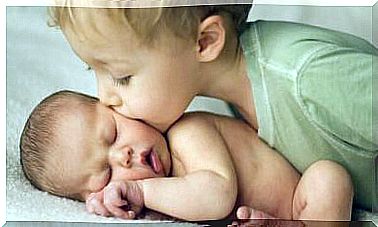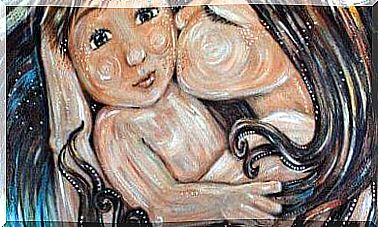The Art Of Caresses

The art of caresses is all about learning to differentiate between a child who is “treated gently” and a totally “spoiled” child. The following lines explain the difference between the two terms.
Let’s be honest, if there is one sentence that we hear more often than we’d like it to be: Your child is very pampered . Or alternatively: How spoiled your son is!
Even if the person does not say these sentences in a malicious tone, there are still some allegations in the statement. Then we think: Am I overdoing it? Why do you tell me this every time I shower my child with a little tenderness ?
Most people forget that there is a subtle difference between a cared for child and a spoiled child. In fact, they tend to consider both synonymous with forgiving a child. The negative connotation can result from a lack of information on the subject, so let’s get this sorted out.
A mother is considered mimosa if she is inclined to show affection for her children. Tenderness like kisses, hugs, compliments and nice words that she gives are part of her nature and the way she is educated.
Whatever is given to the children, the children will give to society.
Karl A. Menninger
According to the dictionary, a spoiled child is one who receives many acts of pampering (demonstrations of affection, concessions, flattery, and the like). Tenderness is a sign of affection. They are given with care and / or tenderness out of affection. For example, when we stroke and care for our baby, we are pampering it in a positive way. Why? Because we give him affection in a tender way.
An overly spoiled child, on the other hand, is one that parents tend to be extremely lenient with. The difference is that the latter children enjoy an excessive amount of indulgence from their parents, while the former simply receive a large amount of caresses.
There are children who are caressed and pampered at the same time, so that in the end they are pampered. But that is not true in all cases.
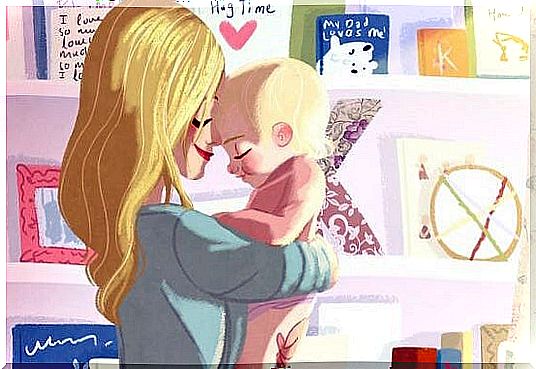
The art of caresses
Nothing is nicer than taking care of our little ones. Being a loving, caring, and affectionate mother is one way to promote the psychological and emotional wellbeing of our children.
A good mother knows how to develop the right strategies to avoid crossing the line of affection toward indulgence and coddling. There will be love, but at the same time it will avoid promoting harmful personal development in the child. In addition, a child who receives our caresses will be a child with better social skills.
Contrary to what many people think, a child who receives constant affection and expressions of love can become stronger and more confident than a child who does not receive affection – according to the motto “without this nonsense you get stronger”.
Conscious parenting: I will take care of you without spoiling you
Will the ability to cuddle really reflect that positively on our children? The answer is YES, and to understand it we need to look at the answer based on attachment theory.
The concept of attachment parenting, coined by pediatrician William Sears, sowed the seeds of this conscious parenting movement that we know today as “attachment parenting ,” “natural, respectful, or conscious parenting.”
A caressed child can become an individual with greater emotional maturity and develop a secure bond. At the same time, a secure bond promotes the development of a secure and independent personality. This security also benefits self-esteem, because tenderness, caresses and attention are all roots that develop children with stronger personalities in the long term.
The motto is: I will take care of you without spoiling you. I care for you so that you feel loved and learn to appreciate those who love you.
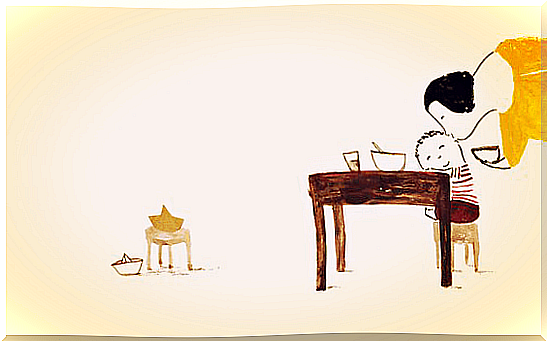
A child who receives tenderness, security, a stable affection that knows neither blackmail nor toxicity will never become a little tyrant or a dependent child. The child who receives caresses learns the value of affective language and will feel free and safe to respond in the same way to those who love it.
freedom
Mothers who care for their children do it because it comes from their hearts. They know that tenderness is an exclusive synonym for treating with affection, raising with affection and consideration. They also understand that raising children with respect has a very specific goal: to lead our children from the heart so that they feel safer and freer every day until they can go their own way.
Indeed, affection has no expiration date. They will continue to be practiced into adulthood, where they will shower our children with the most wonderful affection. The bottom line is to love with wisdom.
